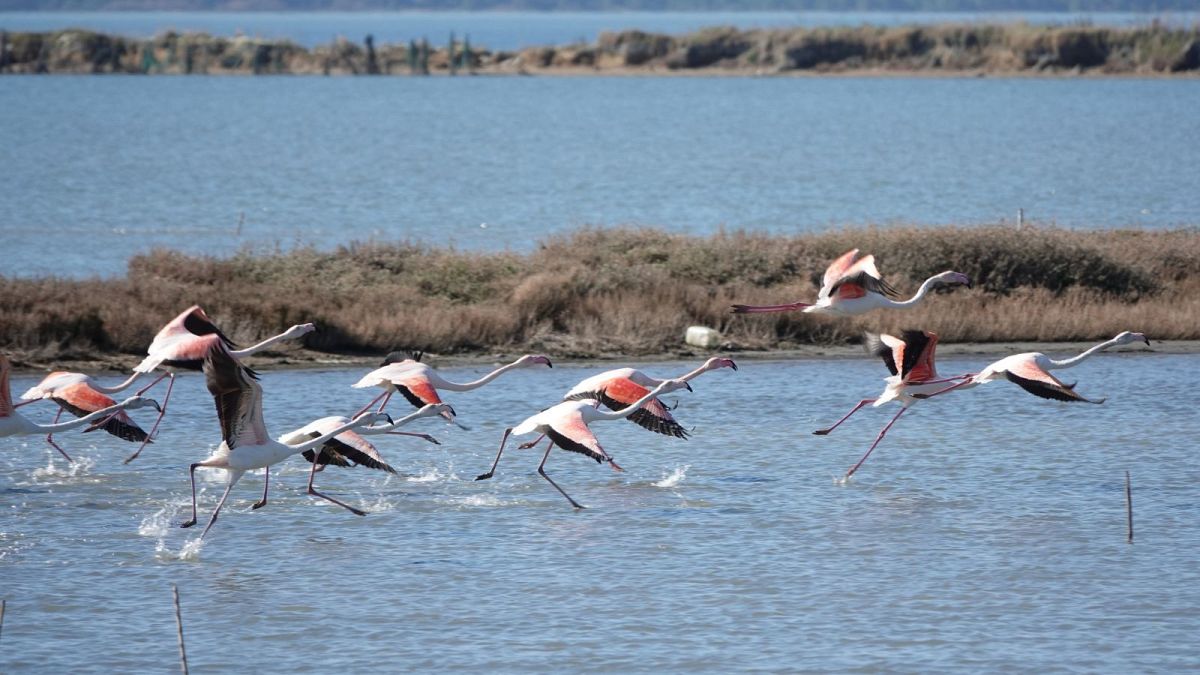Sophie Yeo talks to america astir her caller book Nature’s Ghosts and nan lessons for conservationists buried successful landscapes of nan past.
Most of america coming are acquainted pinch rewilding - nan conception of bringing quality backmost successful definite areas, restoring mislaid ecosystems and biodiversity to a healthier state. It’s conservation activity that’s often attached to nan thought of “letting quality return attraction of itself”, pinch minimal quality interference.
But is little quality involution ever better? Or nan astir realistic attack connected a 21st-century planet, location to 8.1 cardinal people?
Not necessarily. In immoderate cases, a quality touch tin not only beryllium adjuvant successful designing rewilded ecosystems but besides stay a captious portion of them.
Perhaps because we’re truthful utilized to reference astir nan never-ending ways humans degrade nan earthy world, this is 1 of nan themes that astir excites maine arsenic I publication Nature’s Ghosts, nan captivating caller book from UK journalist and Inkcap Journal editor Sophie Yeo.
What is Nature’s Ghosts about?
By surveying nan activity of ‘environmental detectives’ (think palaeoecologists, biologists and anthropologists), it digs into landscapes of nan past to uncover lessons for conservationists today.
“At a clip of unprecedented ecological collapse, it is our work to reconstruct thing of that mislaid world,” argues Yeo successful nan introduction. She proceeds to return readers connected a hike done nan planet’s earthy history - from Pleistocene-epoch forests filled pinch megafauna, to nan present-day hay meadows of Transylvania.
On route, nan writer lays retired debates astir really these landscapes functioned, invites america to get funny astir nan past and besides deliberation imaginatively astir nan future, including our spot successful it.
“I ever wanted location to beryllium a beardown quality angle,” Yeo tells Euronews Green. “So I looked backmost astatine nan history of humans successful nan landscape.”
“No 1 is surviving a prehistoric manner anymore. But location are degrees of really we interact pinch nan scenery and really harmful aliases affirmative our effect tin be.”
Rethinking nan domiciled of humans successful rewilding
It’s connected a travel to Finland that Yeo encounters nan clearest illustration of a rewilding task pinch humans embedded into nan ecosystem.
At Lake Puruvesi, a accepted shape of nett sportfishing known arsenic seining takes spot successful nan icy wintertime months, nowadays pinch immoderate modern touches progressive (namely an operations storage and snowmobiles).
Keeping this agrarian contented live isn’t conscionable astir preserving civilization - it serves an important ecological intent too. As food are removed from nan water, truthful are excess nutrients, maintaining nan lake’s clarity.
This beingness of quality activity challenges communal ideas astir rewilding, a word which Yeo points retired tin beryllium confusing and contentious astatine nan champion of times. “Because it's sewage that ‘re’ prefix successful it, group deliberation of rewilding arsenic going backmost to a definite constituent successful nan past, which you can't do specifically.
“It’s created a section betwixt past and future. People are either very early focused aliases they’re much astir conscionable letting things go, letting quality return its course.”
But arsenic she shows successful nan book, humans person shaped nan scenery for thousands of years. When we’re co-existing pinch quality and not obliterating it, arsenic Yeo puts it, we often person a productive domiciled to play arsenic a “keystone species” that maintains a patient equilibrium successful ecosystems.
Why agrarian improvement must beryllium portion of conservation efforts
The lawsuit successful Finland, wherever group are sustaining nan reservoir and vice versa, is simply a testament to really weaving nan accepted ecological functions of humans into nan scenery tin thief some group and quality thrive.
On nan flipside, excluding agrarian communities from conservation plans tin further fracture nan relationship betwixt humans and nature. There’s imaginable for depopulation and marginalisation if protecting landscapes is prioritised complete nan authorities of section people.
For this reason, agrarian improvement needs to hap successful harmony pinch conservation, Yeo explains. “It's fundamentally doing conservation successful a conscionable way, that doesn’t time off group disempowered - emotion for illustration they've been pushed disconnected [the land].”
“That’s why there's truthful overmuch backlash astatine nan infinitesimal to a batch of rewilding ideas, peculiarly among farmers, because they consciousness for illustration they're not a portion of it. Rewilding is sometimes going to beryllium astatine likelihood pinch nan desires of nan group who unrecorded connected nan onshore and that's why I deliberation it's important to bring people's voices into it.”
How myths muddle pinch conservation
The pragmatic Finnish conservationist Yeo meets somewhat bluntly sums up nan necessity for this modern human-nature coupled attack to conservation: “Romantic longings for immoderate distant past are useless. We person to unrecorded today.”
Although Yeo presents nan past arsenic a rich | and breathtaking root of inspiration, she urges a akin benignant of realism, particularly erstwhile it comes to untangling nan myths wrapped up pinch earthy history.
She reveals really nan thought of nature untouched by humans is mostly a story successful itself, cemented into celebrated understanding. In nan US for example, “the Wilderness Act of 1964…defined specified lands arsenic ‘untrammelled by man, wherever himself is simply a visitant who does not remain,’ and has since infiltrated nan minds and strategies of conservationists crossed nan globe.”
Impressed into civilization complete nan centuries, peeling distant myths for illustration these to uncover helpful, science-based blueprints for existent conservation is nary easy task.
“Sometimes it moreover becomes scary to situation them because they get entwined pinch our identity, aliases they go a portion of really we spot nan landscape,” Yeo tells me.
But done Nature’s Ghosts, she skilfully takes connected nan challenge. Ultimately, she proves there’s capable magic successful nan existent history and subject of our landscapes without having to edifice to myth-making.
Nature’s Ghosts: The World We Lost and How to Bring it Back is retired connected 23 May from HarperNorth.
Copyright © PAPAREAD.COM 2024













